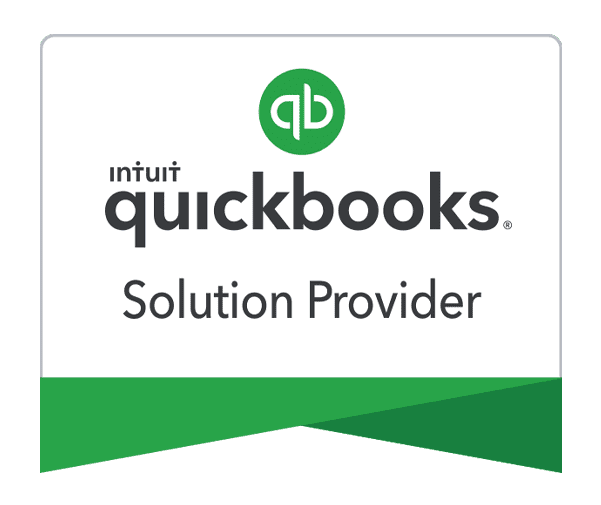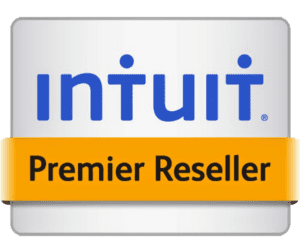For companies using NetSuite, integrating secure payment processing methods is essential for safeguarding customer data and maintaining trust. One of the most effective tools for this purpose is secure tokenization. This technology helps to minimize the risks associated with handling sensitive payment information by replacing it with tokens that are meaningless to hackers.
Secure tokenization is particularly valuable for businesses that rely on NetSuite, as it ensures that payment data remains protected throughout the transaction process. By using tokenization, businesses can enhance their security posture while also meeting compliance requirements, such as PCI-DSS (Payment Card Industry Data Security Standard).
Let’s explore what secure tokenization is, how it works within NetSuite, and the specific ways it protects payment data from potential breaches. Also, we’ll discuss how secure tokenization can be achieved with payment integration with NetSuite.
What is Secure Tokenization?
Secure tokenization is a process that replaces sensitive payment data, such as credit card numbers, with unique identification symbols or “tokens.” These tokens hold no intrinsic value and cannot be reverse-engineered to reveal the original payment data. Instead, the actual payment information is securely stored in a token vault, a highly secure database that keeps sensitive data separate from the business’s operational systems. This separation minimizes the risk of data breaches, as even if a hacker gains access to the system, they cannot retrieve usable payment information.
The tokenization process begins when a customer initiates a payment. The payment data is immediately tokenized, and only the token is used throughout the transaction process. This approach ensures that sensitive information never travels through a business’s internal systems, significantly reducing the chances of exposure. For businesses using NetSuite, integrating secure tokenization into their payment processing workflows provides an additional layer of protection against cyber threats.
Tokenization differs from encryption, another method of securing payment data. While encryption transforms data into a code that can only be decrypted with the correct key, tokenization eliminates the sensitive data altogether by replacing it with tokens. This method is particularly advantageous because it removes sensitive data from the environment, reducing the scope of compliance requirements and making it easier to secure the overall system.
Enhanced Secure Tokenization through Payment Integration
Secure tokenization can be seamlessly integrated into your payment processes when combined with a robust payment gateway. Payment gateway integration simplifies the tokenization process by converting sensitive payment data into secure, encrypted tokens. These tokens replace actual card details, ensuring that sensitive information never touches your internal systems. The result is enhanced security and reduced risk of data breaches, as even if tokens are intercepted, they cannot be used for fraudulent transactions. By integrating a payment gateway, businesses can automate the tokenization process, ensuring that all transactions are protected without requiring manual intervention.
In addition to security, payment gateway integration also enhances efficiency. By handling tokenization automatically, the integration ensures that payment data is securely transmitted in real-time, reducing processing delays. This seamless operation helps businesses focus on other areas of their operations while maintaining PCI compliance. With the right payment gateway integration, secure tokenization becomes an effortless part of your transaction flow, providing peace of mind and a safer payment environment.
Discover the benefits of NetSuite payment integration for large businesses.
How Secure Tokenization Protects Payment Data in NetSuite
Minimizes Data Breach Risks
Secure tokenization significantly reduces the risk of data breaches by ensuring that sensitive payment information is never stored within NetSuite. When tokenization is in place, businesses only work with tokens, which are useless to hackers. Even if a cybercriminal gains access to the system, they will not be able to retrieve any meaningful data. This drastically lowers the likelihood of a successful breach, protecting both the business and its customers from potential financial and reputational harm.
The impact of a data breach can be devastating, leading to financial losses, legal liabilities, and damage to a company’s reputation. By minimizing the risk of breaches through tokenization, businesses can avoid these negative outcomes and focus on growing their operations without constantly worrying about security threats.
Ensures PCI-DSS Compliance
The Payment Card Industry Data Security Standard (PCI-DSS) sets stringent requirements for businesses that handle payment card data. Compliance with these standards is mandatory for avoiding penalties and maintaining the ability to process card payments. Secure tokenization helps businesses using NetSuite meet PCI-DSS requirements by reducing the scope of compliance. Since tokenized data is not considered sensitive, the burden of securing payment information is lessened, making it easier to achieve and maintain compliance.
By integrating tokenization into NetSuite, businesses can streamline their compliance efforts, reducing the time and resources required to meet PCI-DSS standards. This not only protects the business from penalties but also enhances customer trust by demonstrating a commitment to data security.
Protects Against Insider Threats
Insider threats, whether intentional or accidental, can pose significant risks to a business’s payment data. Employees with access to sensitive information may inadvertently expose it to unauthorized parties, or worse, deliberately misuse it. Secure tokenization mitigates this risk by ensuring that employees never have access to actual payment data. Instead, they only work with tokens, which cannot be used to extract sensitive information.
By minimizing the exposure of sensitive data to internal personnel, tokenization reduces the risk of insider threats and helps maintain the integrity of the business’s payment systems. This protection is crucial in an era where insider threats are becoming increasingly common and difficult to detect.
Enhances Data Privacy
In addition to protecting against breaches and insider threats, secure tokenization enhances overall data privacy. With tokenization, sensitive payment information is never stored in NetSuite, ensuring that customer data remains private and secure. This is particularly important in today’s regulatory environment, where data privacy laws such as GDPR (General Data Protection Regulation) and CCPA (California Consumer Privacy Act) impose strict requirements on how businesses handle customer data.
By using tokenization to protect payment data, businesses can demonstrate their commitment to data privacy, building trust with customers and avoiding potential legal issues. This proactive approach to privacy protection can also serve as a competitive advantage, differentiating a business from others that may not prioritize data security.
Simplifies Data Management
Managing sensitive payment data can be complex and resource-intensive, particularly for businesses that process large volumes of transactions. Secure tokenization simplifies data management by reducing the amount of sensitive information that needs to be stored and protected. With tokenization in place, businesses can focus on managing tokens rather than sensitive data, streamlining their operations and reducing the burden on IT and security teams.
This simplification extends to other areas of the business as well, such as auditing and reporting. Tokenized data is easier to manage and track, making it simpler to comply with regulatory requirements and respond to audit requests. This efficiency can save businesses time and money while also enhancing their overall security posture.
Reduces Financial Liabilities
A data breach involving payment information can result in significant financial liabilities, including fines, legal fees, and compensation to affected customers. By implementing secure tokenization in NetSuite, businesses can reduce their exposure to these liabilities. Since tokenized data is not considered sensitive, the risk of a breach leading to financial losses is minimized.
In addition to protecting against the direct costs of a breach, tokenization can also help businesses avoid the indirect costs, such as lost revenue due to damaged customer trust. By investing in secure tokenization, businesses can protect their bottom line and ensure long-term financial stability.
Supports Seamless Payment Processing
Secure tokenization does not interfere with the payment processing experience for customers. In fact, it supports seamless and efficient transactions by ensuring that sensitive data is protected without adding complexity to the payment process. For businesses using NetSuite, this means that they can offer a secure payment experience without compromising on speed or convenience.
By integrating tokenization with NetSuite, businesses can maintain the high level of service that customers expect while also ensuring that their payment data is protected. This combination of security and convenience is essential for maintaining customer satisfaction and loyalty in a competitive marketplace.
Future-Proofs Your Business
As cyber threats continue to evolve, businesses must stay ahead of the curve by adopting the latest security technologies. Secure tokenization is a future-proof solution that provides long-term protection for payment data. By implementing tokenization now, businesses using NetSuite can ensure that they are prepared for the security challenges of tomorrow.
In addition to protecting against current threats, tokenization is also adaptable to new payment technologies and regulations. This flexibility makes it a valuable investment for businesses that want to stay competitive and secure in an ever-changing digital landscape.
Conclusion
If your business is ready to enhance its payment security in NetSuite, integrating secure tokenization is a crucial step. Tokenization not only protects sensitive payment data but also simplifies compliance, reduces financial risks, and enhances overall data management. By implementing this technology, your business can safeguard customer information and maintain trust in an increasingly complex threat environment.
At Paygration, our experts can set up the payment integration you need to protect payment data in NetSuite. With our support, you can achieve secure, compliant payment processing that fits your unique business requirements. To get started, call us at 866-949-7267 or click the link below for a demo.

















